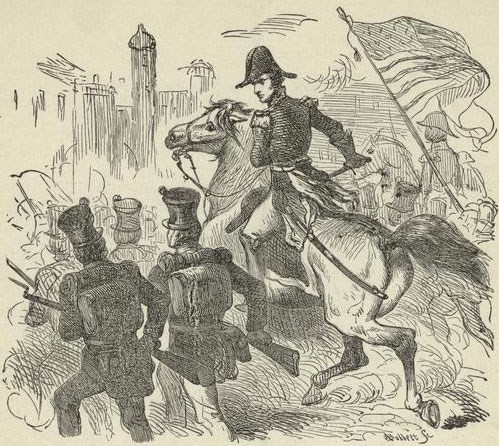Last updated: May 6, 2022
Article
Andrew Jackson in Pensacola, Florida

The Hermitage
Andrew Jackson may not have been present in Pensacola often, but his presence is an important part of this city’s legacy. Jackson was assigned to Pensacola three times, once in 1812, then in 1818, and lastly in 1821 and each time his actions were in favor of American freedoms, authority, and sovereignty. Though not every decision Jackson made while in Pensacola was well received, each experience impacted his future and the future of this country.
While Jackson did not spend much time in Pensacola, his course of action through the area influenced his and Pensacola’s future, as well as the country as a whole. Should he not been victorious during the Battle of New Orleans, which concluded British threat to the United States, had he not pushed out the British in Pensacola first? Could Florida have remained in Spanish hands for longer had he not illegally occupied it showing Spain’s lack of defense in the area? Would he have made a name for himself as a politician had the opportunity not become available in Florida? Jackson impacted the future of Pensacola and Florida and represents a story American freedom, power, and sovereignty.
- Birzer, Bradley. In Defense of Andrew Jackson. Washington DC: Regnery Publishing, 2018.
- Brands, H. W. Andrew Jackson: His Life and Times. New York: First Anchor Books, 2005.
- Buchanan, John. Jackson’s Way: Andrew Jackson and the People of the Western Waters. New York: John Wiley & Sons, 2001.
- Heidler, David, and Jeanne Heidler. Old Hickory’s War: Andrew Jackson and the Quest for Empire. Baton Rouge: Louisana State University Press, 2003.
- Lawson, Gary, and Guy Seidman. The Constitution of Empire: Territorial Expansion and American Legal History. New Haven: Yale University Press, 2004.
- Monroe, James. James Monroe to Andrew Jackson. September 7, 1814. In The Papers of James Monroe, last accessed September, 2018. https://academics.umw.edu/jamesmonroepapers.
- Monroe, James. James Monroe to Andrew Jackson. October 21, 1814. In The Papers of James Monroe, last accessed September, 2018. https://academics.umw.edu/jamesmonroepapers.
- Monroe, James. James Monroe to Andrew Jackson. December 10, 1814. In The Papers of James Monroe, last accessed September, 2018. https://academics.umw.edu/jamesmonroepapers.
- Monroe, James. James Monroe to Andrew Jackson. February 15, 1815. In The Papers of James Monroe, last accessed September, 2018. https://academics.umw.edu/jamesmonroepapers.
- Monroe, James. James Monroe to Andrew Jackson. October 5, 1817. In The Papers of James Monroe, last accessed September, 2018. https://academics.umw.edu/jamesmonroepapers.
- Monroe, James. James Monroe to Andrew Jackson. July 19, 1818. In The Papers of James Monroe, last accessed September, 2018. https://academics.umw.edu/jamesmonroepapers.
- Monroe, James. James Monroe to Andrew Jackson. January 24, 1821. In The Papers of James Monroe, last accessed September, 2018. https://academics.umw.edu/jamesmonroepapers.
- Monroe, James. James Monroe to Andrew Jackson. December 31, 1821. In The Papers of James Monroe, last accessed September, 2018. https://academics.umw.edu/jamesmonroepapers.
